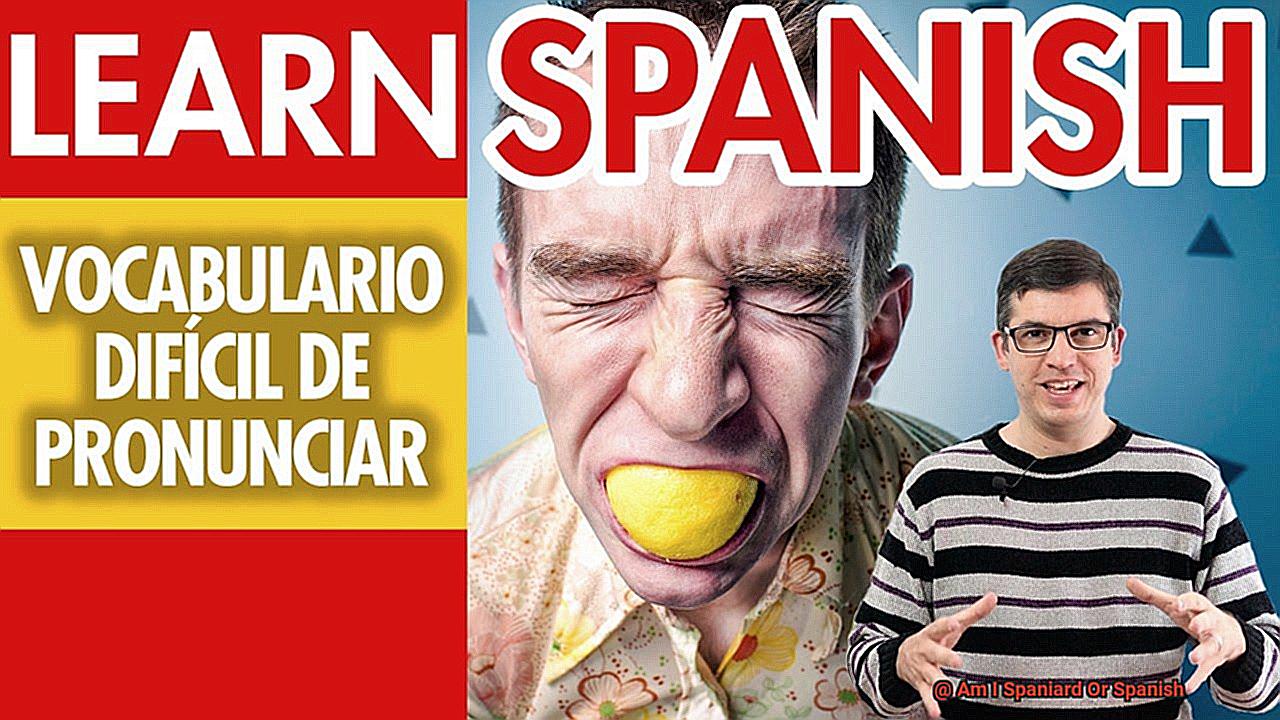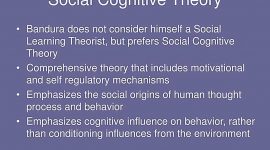
Welcome to my blog, where I’ll be sharing my personal journey of discovering my identity as a Spaniard or Spanish. As someone who was born and raised in this vibrant country, I have always been intrigued by the unique blend of cultures, traditions, and customs that make us who we are.
From flamenco rhythms to savory paella dishes, siesta naps to lively fiestas, there’s never a dull moment in the Spanish way of life. Join me as we explore the depths of our rich heritage and how it has shaped my perspective on the world.
So grab a cup of café con leche and let’s embark on this journey together.
Am I Spaniard Or Spanish?
Contents
- 1 Am I Spaniard Or Spanish?
- 2 The Origins of Spain and Its Influence on Identity
- 3 Exploring the Complex History of Spain and Its Diverse Population
- 4 Defining “Hispanic” and Its Role in Identifying as a Spaniard or Spanish
- 5 Regional Identities in Spain: Catalonia, Basque Country, and More
- 6 Factors That Determine Whether One is a Spaniard or Spanish
- 7 Personal Preference and Self-Identification: Am I a Spaniard or Spanish?
- 8 Conclusion
When it comes to the terms Spaniard and Spanish, many people use them interchangeably. However, there are subtle differences between the two that may cause confusion for those who are not familiar with the nuances of the Spanish language and culture. In this blog post, we will explore the distinction between being a Spaniard and being Spanish, including their historical background, overlap between ethnicity and nationality, regional identities, cultural influences, and personal interpretations.
Before diving into the comparison, let’s first define the terms. A Spaniard refers to a person who is a native or inhabitant of Spain, while Spanish refers to anything related to Spain, such as the language, culture, or people. It is important to note that not all Spanish people are Spaniards, as there are also Latin American countries that speak Spanish.
To understand the differences between being a Spaniard and being Spanish, it is necessary to delve into the history of Spain. The Iberian Peninsula, which is now known as Spain, has been inhabited by various groups throughout history, such as the Celts, Romans, and Visigoths. However, it was during the 8th century when the Moors invaded and occupied most of Spain for over 700 years. This resulted in a rich blend of cultures and influences in the country.
One factor that contributes to the confusion between Spaniard and Spanish is the overlap between ethnicity and nationality. While both terms refer to someone’s identity, ethnicity refers to a person’s cultural or racial background, while nationality refers to their legal citizenship. This means that one can be ethnically Spanish but not necessarily a citizen of Spain, or vice versa.
Another aspect that adds to the complexity of this question is that Spain is made up of various autonomous regions with their own distinct cultures and identities. Some of these regions even have their own languages, such as Catalan in Catalonia and Basque in Basque Country. This further blurs the lines between being a Spaniard and being Spanish, as one’s regional identity can also play a significant role in their sense of belonging and identity.
The Origins of Spain and Its Influence on Identity
Spain is a country with a rich and complex history, influenced by various cultures and civilizations. Its identity is a product of diverse cultural influences, as well as regional diversity within its borders. In this blog post, we will explore the origins of Spain and how they have influenced its unique identity.
A Melting Pot of Cultures
The earliest known inhabitants of the Iberian Peninsula were the Celts, followed by the Phoenicians, Greeks, and Carthaginians. However, it was the Romans who conquered the region in 206 BC and left a lasting impact on its culture and language. The fall of the Roman Empire led to invasions by Germanic tribes, such as the Visigoths and Suebi. But it was the Moors who had the greatest influence on Spain’s identity.
The Moors were North African Muslims who brought their religion and culture to the Iberian Peninsula. For over 700 years, they ruled most of Spain and left a significant imprint on its art, architecture, cuisine, and language. This period, known as Al-Andalus, is considered a golden age in Spain’s history and has contributed greatly to its diverse identity.
From Catholic Monarchs to a Global Empire
In 1492, Spain was united under Catholic Monarchs Ferdinand II of Aragon and Isabella I of Castile. This marked the beginning of the Spanish Empire, which expanded its influence through exploration and colonization in the New World. The Spanish Empire reached its height in the 16th century but began to decline in the 17th century due to economic issues and conflicts with other European powers.
Evolution of Identity
Throughout these historical events, Spain’s identity evolved and was shaped by its diverse cultural influences. The Spanish language is a fusion of Latin, Arabic, and other languages brought by invaders. Similarly, Spanish cuisine has influences from various cultures, including Roman, Moorish, and indigenous peoples.
However, Spain’s identity is not just a product of external influences. Many Spaniards today have mixed heritage from different cultures that have inhabited the region over centuries. This complexity can lead to confusion when trying to define one’s Spanish identity.
Exploring the Complex History of Spain and Its Diverse Population
The concept of “Spanishness” is a complex and ever-evolving one. From its ancient roots in the Roman Empire to its modern-day identity shaped by colonization and globalization, Spain has a diverse and dynamic history that continues to influence its national identity. In this post, we will delve into the multifaceted nature of “Spanishness” and understand how it has evolved over time.
A Brief History of Spain
The history of Spain dates back to the Roman Empire, with influences from various cultures such as the Visigoths, Moors, and Celts. In the 15th century, Spain went through a period of colonization, resulting in a significant mixing of races and cultures. This rich history has shaped Spain into the diverse country it is today.
Defining “Spanish” and “Spaniard”
The term “Spaniard” refers to a person who is a native of Spain or has Spanish ancestry. On the other hand, the term “Spanish” is used to describe the nationality, language, or culture of Spain. However, due to its diverse history and geographical location, there is no one specific identity that can define a Spaniard or Spanish person.
Regional Identities in Spain
The Spanish population is made up of different ethnicities, including Basque, Catalan, and Galician, each with their own unique traditions and customs. These regional identities play a significant role in shaping the concept of “Spanishness.” For example, someone from Catalonia may identify more strongly with their Catalan identity rather than being Spanish.
Influence of Language on Spanish Identity
The idea of being “Spanish” is closely tied to the country’s language, with Spanish being the official language of Spain. However, there are also other languages spoken in different regions of Spain, such as Catalan and Basque, which have their own distinct identities. This adds another layer to the concept of “Spanishness.”
Personal Identity and “Spanishness”
The question of whether someone is a Spaniard or Spanish often comes down to personal identity and how one chooses to identify themselves. Some people may identify as both Spaniard and Spanish, while others may reject these labels altogether and identify solely with their regional or cultural identity. Ultimately, it’s up to individuals to determine their own identity and how they choose to identify themselves.
Defining “Hispanic” and Its Role in Identifying as a Spaniard or Spanish
When it comes to defining one’s identity, there are often many layers and complexities involved. This is especially true for Spaniards, who have a rich and diverse history that has shaped their national identity. One aspect of this identity that can be particularly complex is the term “Hispanic” and its role in identifying as a Spaniard or Spanish. In this blog post, we will delve into the nuances and intricacies surrounding this term and its relationship to Spanish identity.
What Does “Hispanic” Mean?
To understand the complexities surrounding the term “Hispanic,” it’s important to first define what it means. In general, “Hispanic” refers to people from Spanish-speaking countries or with Spanish ancestry. However, this term is often used interchangeably with “Latino,” which encompasses people from Latin America, including Brazil and the Caribbean. While both terms have a similar cultural and linguistic connotation, “Hispanic” has a more specific focus on Spanish heritage.
The History of “Hispanic”
The term “Hispanic” was officially adopted by the U.S. government in the 1970s to categorize people from Spanish-speaking backgrounds. However, this label is not universally embraced by all Spaniards. In Spain, the term is not commonly used as it is seen as a label imposed by the U.S. government. This highlights the colonial roots of the term, as it was created by a country that once colonized parts of Latin America.
The Complexities of Identifying as Hispanic
For some Spaniards, identifying as Hispanic may be a natural choice if they have strong ties to Latin American countries or if they are descendants of Spanish colonizers in those regions. However, for others, this label may not accurately represent their personal identity and history. Many Spaniards may reject the label of Hispanic and prefer to identify solely as Spaniards, embracing their own distinct culture and history.

Personal Preferences and Context
The use of the term “Hispanic” can also vary depending on personal preferences and context. Some people may use it to refer to a shared Latin American heritage, while others may use it as an umbrella term for all Spanish-speaking people. It’s important to recognize that there is no one right way to identify as a Spaniard, and personal preferences and context should be respected.
Regional Identities in Spain: Catalonia, Basque Country, and More
When one thinks of Spain, images of flamenco dancers, bullfighting, and sunny beaches may come to mind. However, Spain is a country with a rich and diverse history, shaped by the unique regional identities of its different areas. From Catalonia to the Basque Country and beyond, these regions have their own distinct cultures, languages, and traditions that contribute to the overall Spanish identity.
Catalonia is perhaps one of the most well-known regions in Spain, located in the northeast of the country. This region has its own language, Catalan, which is spoken by over 9 million people. Many Catalans identify strongly with their Catalan heritage and may even consider themselves Catalan first and Spanish second. This strong sense of regional identity can be seen in Catalonia’s vibrant culture, including its unique traditional dance, the sardana.
Moving further north, we come to the Basque Country. The Basque people have a long history dating back thousands of years, and their language, Euskara, is unrelated to any other language in Europe. Many Basques have a strong sense of cultural identity and may not even identify as Spanish at all. This can be seen in their traditional celebrations such as the San Fermin festival in Pamplona and the Basque pelota game.
But Spain’s diversity doesn’t stop there. Each region has its own unique identity, such as Galicia’s Celtic influence or Andalusia’s Moorish influence. These regions also have their own distinct languages such as Galician and Andalusian Spanish. Even within regions, there are differences in dialects and traditions that contribute to the rich tapestry of Spanish regional identities.
However, it is important to note that despite these regional identities, all of these regions are still part of one country – Spain. While some may identify strongly with their specific region, they are also part of a larger Spanish identity. This can be seen in the shared national celebrations and traditions, such as the famous La Tomatina festival in Valencia or the La Feria de Abril in Seville.
Factors That Determine Whether One is a Spaniard or Spanish
Have you ever wondered what makes someone a Spaniard or Spanish? Is it their nationality, language, culture, or something else entirely? As an expert on the topic, I’m here to break down the various factors that can influence one’s identification as a Spaniard or Spanish.
Nationality and Citizenship:
Let’s start with the basics. A Spaniard is someone who holds Spanish citizenship, meaning they have gone through the legal process of obtaining citizenship in Spain. This can include being born in Spain to Spanish parents, marrying a Spanish citizen, or going through the naturalization process. On the other hand, someone can be Spanish by ethnicity, meaning they have Spanish heritage and ancestry but may not necessarily hold Spanish citizenship. This can cause confusion when trying to determine if someone is a Spaniard or Spanish.
Language:
Another important factor to consider is language. Spanish is the official language of Spain and is spoken by the majority of its population. Therefore, those who speak Spanish as their first language can be considered Spanish in terms of language. However, there are other languages spoken in Spain, such as Catalan, Basque, and Galician, which are also considered official languages in certain regions. So, someone could be a Spaniard but not necessarily speak Spanish as their first language.
Cultural Identity:
Spain has a diverse culture with influences from different regions and historical backgrounds. Those who identify strongly with Spanish culture, traditions, and customs can be considered Spanish in terms of cultural identity. This includes aspects such as food, music, dance, and celebrations. However, this does not necessarily mean they have Spanish citizenship or speak Spanish as their first language.
Geographic Location:
The region where someone was born or currently resides in can also impact whether they are considered a Spaniard or Spanish. For example, those born and raised in Spain would likely identify themselves as Spaniards due to their cultural upbringing and experiences living in the country. On the other hand, someone with Spanish heritage but born and raised in another country may identify more as Spanish due to their connection to their ancestry.
Personal Preference and Self-Identification: Am I a Spaniard or Spanish?
When it comes to personal identity, there is no one-size-fits-all answer. We all have our own unique backgrounds, experiences, and beliefs that shape how we see ourselves. For Spaniards and Spanish individuals, the question “Am I Spaniard or Spanish?” may not have a straightforward answer. In this blog post, we will delve into the complexities of personal identity and how it can influence an individual’s self-identification as either a Spaniard or Spanish.
Nationality vs. Ethnicity: Understanding the Difference
Before we dive into the intricacies of personal identity, it is important to understand the difference between nationality and ethnicity. Nationality refers to the legal relationship between an individual and their country, while ethnicity relates to a person’s cultural heritage and ancestry. For many individuals, these terms may go hand in hand, but for others, they may have very different meanings.
The Cultural and Historical Significance of “Spaniard” and “Spanish”
The terms Spaniard and Spanish have a long history, dating back to the Roman Empire. Spain has a diverse cultural background, influenced by various groups such as the Romans, Moors, and Celts. This rich cultural heritage has shaped what it means to be “Spanish” over time.
However, it is also important to note that these terms have evolved over time and can have different connotations for different individuals. For some, identifying as a Spaniard may hold more cultural significance, while for others, being Spanish may be more about nationality.
Personal Preference: The Power of Self-Identification
When it comes to personal identity, self-identification is a powerful factor. While some may feel a strong connection to one term over the other, others may use them interchangeably or even reject both labels altogether. Ultimately, it is up to each individual to decide how they want to identify themselves.
Cultural Diversity: One Country, Many Identities
Spain is a diverse country with different regions and cultures. This diversity is reflected in the perspectives of its people when it comes to personal identity. For example, someone from Catalonia may identify more strongly as Catalan rather than Spanish, due to their distinct cultural and linguistic heritage.
Conclusion
In conclusion, the question of “Am I Spaniard or Spanish?” is not one that can be answered with a simple yes or no. It is a complex and fluid concept, shaped by individual experiences, preferences, and connections.
The diversity of Spain’s culture and traditions is reflected in the unique blend of factors that make up personal identities. From nationality to language, cultural influences to regional identities, there is no single defining factor that determines one’s identity as a Spaniard or Spanish individual.
Ultimately, it is up to each person to determine how they want to identify themselves. Whether it’s embracing their regional identity, connecting with their cultural heritage, or simply choosing not to label themselves at all – personal preference plays a significant role in shaping one’s sense of self.
As we come to the end of this journey into the complexities of being a Spaniard or Spanish individual, let us remember that diversity should be celebrated and embraced. Just like Spain’s vibrant culture and rich history have been influenced by various factors over time, our own personal identities are constantly evolving and growing. So let us embrace the complexity and fluidity of our identities, just as we embrace the beauty and diversity of Spain.


